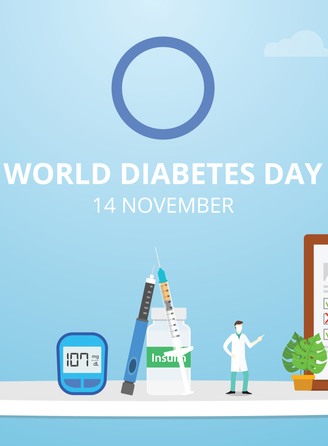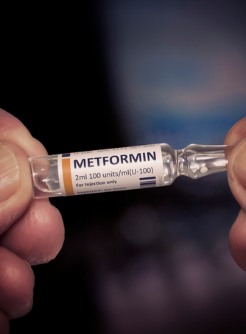Icosapent Ethyl Demonstrates Significant CV Benefits for Diabetes Patients
By MD /alert staff
July 31, 2020
A purified fish oil derivative, icosapent ethyl (IPE), showed substantial cardiovascular benefits for patients with diabetes who are at risk of cardiovascular disease.
A presentation at the 80th American Diabetes Association (ADA) Scientific Sessions, which was virtual because of the novel coronavirus pandemic, said the product, marketed as Vascepa by Amarin Corporation, reduced CV risk vs. placebo in statin-treated patients with either diabetes mellitus plus risk factors or established CV disease. The subgroup analysis of the REDUCE-IT study evaluated Vascepa treatment at 4 g/day.
Primary endpoints included CV death, myocardial infarction (MI), stroke, coronary revascularization, or unstable angina, with the key secondary endpoint described as CV death, MI, or stroke.
In prespecified tertiary and post hoc exploratory analyses of the subgroup of diabetes patients, Brigham and Women’s Hospital-led researchers demonstrated primary composite first and total major adverse cardiovascular event (MACE) reductions of 23% each with Vascepa.
At the same time, key secondary composite first and total MACE reductions of 30% and 29%, respectively, were identified in prespecified tertiary and post hoc exploratory subgroup analyses.
Researchers also observed reductions in post hoc exploratory analyses of other composite endpoints, in diabetes patients and in patients with established cardiovascular disease with or without diabetes at baseline.
“People with diabetes are at markedly increased risk of cardiovascular disease, and that intersection has become a target for research and a focus for clinical care,” explained lead researcher and senior author Deepak L. Bhatt, MD, MPH, Executive Director of Interventional Cardiovascular Programs at Brigham and Women’s Hospital Heart & Vascular Center and Professor of Medicine at Harvard Medical School. “In these analyses, we see the substantial impact that icosapent ethyl could have on reducing cardiovascular risks and complications from diabetes.”
Background information in the article pointed out that cardiovascular disease remains the leading cause of morbidity and mortality in type 2 diabetes especially in patients who already have established atherosclerotic cardiovascular disease (ASCVD). It added that above normal blood levels of triglycerides are common in patients with diabetes and have been associated with increased ASCVD -- (30% and 23% higher risk for non-fatal MI and stroke, respectively) – in that patients population, despite statin therapy.
This spring, the American Heart Association’s Scientific Statement on Clinical Management of Stable Coronary Artery Disease in Patients with Type 2 Diabetes Mellitus stated that “icosapent ethyl is the first non–LDL (low-density lipoprotein)-focused lipid therapy to demonstrate cardiovascular benefit and should be considered first-line therapy for patients with T2DM (type 2 diabetes mellitus) and CAD (coronary artery disease) whose triglycerides remain elevated (>135 mg/dL) despite maximally tolerated statin and lifestyle changes.”
With 58.5% of patients diagnosed with diabetes, 91.0% of those were on one or more medication and 49.5% were on two or more. Results indicated that IPE reduced primary and key secondary first and total (first plus recurrent) events.
“Patients with and without DM both showed substantial benefits, but patients with DM had 1.5-fold greater rates of the primary endpoint in the placebo group, and a 7% absolute risk reduction in first and a 12.7% reduction in total events (both p<0.001) with IPE,” researchers wrote.
Efficacy and safety were generally consistent with the full study, including reductions in secondary and tertiary endpoints and subgroups, and increases in atrial fibrillation/flutter (3.5% vs. 2.2%; p=0.13) and bleeding (13.1% vs. 10.9%; p=0.02). Serious bleeding was not significant (3.2% vs. 2.5%), however, and both fasting glucose and hemoglobin HbA1c remained stable.
“IPE 4g/day provides robust CV benefits in statin-treated patients with DM, with large relative and absolute risk reductions in both first and total CV events,” the researchers concluded.
Vascepa is indicated as an adjunct to maximally tolerated statin therapy to reduce the risk of myocardial infarction, stroke, coronary revascularization and unstable angina requiring hospitalization in adult patients with elevated triglyceride (TG) levels (≥ 150 mg/dL) and established cardiovascular disease or diabetes mellitus and two or more additional risk factors for cardiovascular disease. It also is indicated as an adjunct to diet to reduce TG levels in adult patients with severe (≥ 500 mg/dL) hypertriglyceridemia.















.jpg)






















